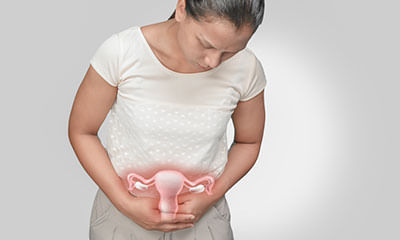Kshar Sutra Treatment For Pilonidal Sinus!
A pilonidal sinus, as indicative of the name, is a narrow channel or a hole located in between the buttocks (underneath the skin). A characteristic feature of the pilonidal sinus is the presence of hair (the hair ruptures the skin and gets embedded within the sinus). A pilonidal sinus or a cyst is also known to contain skin debris, dirt. An infection of the pilonidal cyst may trigger the release of blood and pus from the cyst which is often foul smelling and associated with an excruciating pain.
Risk factors
The pilonidal sinus is more common among the young adult males (often below 40 years) than their female counterparts.
● the condition can also affect individuals who are more into a sedentary lifestyle (can be personal or professional).
● people who are obese or those who have a family history of pilonidal sinus are a higher risk of suffering from the condition.
● pilonidal sinus can also affect people with a deep and hairy natal cleft (the cleft located between the buttocks and extends from below the sacrum up to the perineum).
Symptoms
The symptoms and discomfort experienced in the case of a pilonidal sinus include
The infected cyst appears sore, red, and swollen. One experiences pain and discomfort while in a standing or a sitting position. The hair often protrudes out of the abscess. In some people, there may be the appearance of multiple sinus tracts, piling on the agony. In some case, pilonidal sinus may be accompanied by fever (not commonly observed).
Pilonidal sinus and ayurveda
Conventional treatments such as surgery, lancing, or the use of phenol injections are there to treat pilonidal sinus. However, the medications come with their share of side effects and complications (such as infection at the site of incision, slow healing, bleeding, to name a few). The ayurvedic treatment that uses herbs is 100% safe and effective. Many people with pilonidal sinus and cyst have been completely cured and treated without any deleterious side effects or complications. The main aim of the ayurvedic treatment is to restore the balance between the three doshas (vata, kapha, pitta), the vitiation of which triggers a diseased condition.
Pilonidal sinus also termed as nadi vrana in ayurveda is best treated by kshar sutra therapy. In kshara sutra therapy, threads are smeared with ayurvedic herbs before using them to treat the disease (the thread is placed inside the pilonidal sinus and replaced with a new one after every 7 days). The entire kshara sutra therapy takes between 4-8 weeks (depending on the severity of the condition) to complete. The kshara sutra therapy treat the pilonidal sinus along with the formation of new tissues.
Talking about the diet, throughout the treatment, one should avoid spicy, greasy, and fast foods. Enrich the diet with fruits and green vegetables. Consume plenty of fluids (water, soup, coconut water, fresh fruit juice).
More than exercise, it is important that you walk daily (at least 2kms per day).



+1.svg)
